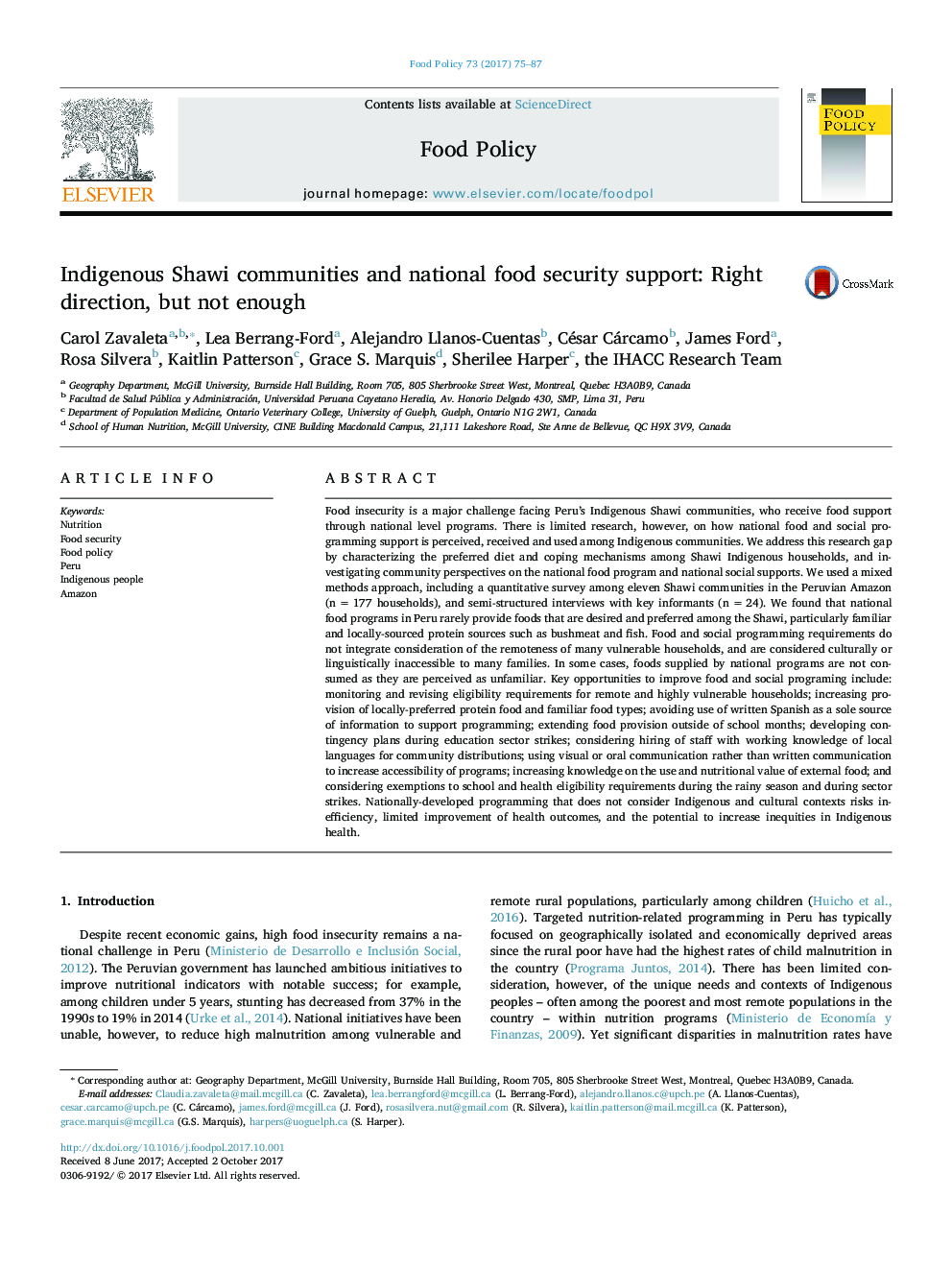| کد مقاله | کد نشریه | سال انتشار | مقاله انگلیسی | نسخه تمام متن |
|---|---|---|---|---|
| 5070032 | 1477003 | 2017 | 13 صفحه PDF | دانلود رایگان |
عنوان انگلیسی مقاله ISI
Indigenous Shawi communities and national food security support: Right direction, but not enough
ترجمه فارسی عنوان
حامیان محلی شوی و پشتیبانی ملی امنیت غذایی: مسیر درست، اما کافی نیست
دانلود مقاله + سفارش ترجمه
دانلود مقاله ISI انگلیسی
رایگان برای ایرانیان
کلمات کلیدی
تغذیه، امنیت غذایی، سیاست غذایی، پرو، مردم بومی، آمازون،
موضوعات مرتبط
علوم زیستی و بیوفناوری
علوم کشاورزی و بیولوژیک
دانش تغذیه
چکیده انگلیسی
Food insecurity is a major challenge facing Peru's Indigenous Shawi communities, who receive food support through national level programs. There is limited research, however, on how national food and social programming support is perceived, received and used among Indigenous communities. We address this research gap by characterizing the preferred diet and coping mechanisms among Shawi Indigenous households, and investigating community perspectives on the national food program and national social supports. We used a mixed methods approach, including a quantitative survey among eleven Shawi communities in the Peruvian Amazon (n = 177 households), and semi-structured interviews with key informants (n = 24). We found that national food programs in Peru rarely provide foods that are desired and preferred among the Shawi, particularly familiar and locally-sourced protein sources such as bushmeat and fish. Food and social programming requirements do not integrate consideration of the remoteness of many vulnerable households, and are considered culturally or linguistically inaccessible to many families. In some cases, foods supplied by national programs are not consumed as they are perceived as unfamiliar. Key opportunities to improve food and social programing include: monitoring and revising eligibility requirements for remote and highly vulnerable households; increasing provision of locally-preferred protein food and familiar food types; avoiding use of written Spanish as a sole source of information to support programming; extending food provision outside of school months; developing contingency plans during education sector strikes; considering hiring of staff with working knowledge of local languages for community distributions; using visual or oral communication rather than written communication to increase accessibility of programs; increasing knowledge on the use and nutritional value of external food; and considering exemptions to school and health eligibility requirements during the rainy season and during sector strikes. Nationally-developed programming that does not consider Indigenous and cultural contexts risks inefficiency, limited improvement of health outcomes, and the potential to increase inequities in Indigenous health.
ناشر
Database: Elsevier - ScienceDirect (ساینس دایرکت)
Journal: Food Policy - Volume 73, December 2017, Pages 75-87
Journal: Food Policy - Volume 73, December 2017, Pages 75-87
نویسندگان
Carol Zavaleta, Lea Berrang-Ford, Alejandro Llanos-Cuentas, César Cárcamo, James Ford, Rosa Silvera, Kaitlin Patterson, Grace S. Marquis, Sherilee Harper, the IHACC Research Team the IHACC Research Team,
